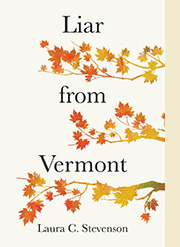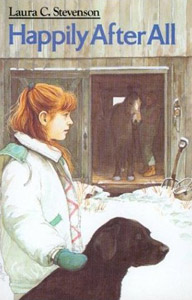A New Series: One Minute Reviews of
Books by Vermont Authors
Laura's column "One Minute Reviews" has appeared bi-weekly in Wilmington, Vermont's Deerfield Valley News since 2015. In April 2018, she found that no Vermont periodical consistently reviews all commercially published fiction and non-fiction by Vermont authors, so she started a series to fill that void. Published reviews from that series and some earlier reviews of local authors are listed with links to a scan of the printed copy. Reviews still in queue are listed without links until they appear in print.
The books reviewed in this series are available through Wilmington's Pettee Memorial Library, the Whitingham Free Public Library, and locally owned Bartleby's Books in Wilmington.
Deerfield Valley News, 12/27/2018
A Nostalgic Look at Vermont in the Days of Hippies
Yvonne Daley, Going Up the Country: When the Hippies, Dreamers, Freaks, and Radicals Moved to Vermont. University Press of New England, 2018.
During the decade following 1965, some 100,000 young people flocked to Vermont in search of values totally different from their parents' leftover Fifties culture of TV, narrow ties, and Sunday dinner with relatives. Some lost interest in Vermont pastoral when winter came, but the more determined bought the cheap land and houses of failing farms and formed hippie communes where free love, vegetarianism, drugs and anti-war fervor flourished. Conservative Vermonters of the older generation (which is to say, most Vermonters, since those of the hippies' generation were leaving the state to find jobs), lifted their eyebrows at the communes' dirty, naked children, the men's long hair, the flowing dresses of the women, and the ever-prevalent drugs. But – and this is the thesis of Yvonne Daley's affectionate remembrances of the period – gradually the communes dwellers' need to learn rural skills and the natives' gradual willingness to give them friendly tips led to unlikely friendships between hippies and the more tolerant of their neighbors. And gradually, as the communes dissolved under the pressures of real-world problems like raising children without an income, many of the quondam hippies became Vermonters and, over the next fifty years, made Vermont into one of the most progressive states in the union.
Daley, once a commune member but later a journalist for the Rutland Herald, presents the hippies' transformation under a series of headings. Starting with descriptions of the early communes, she moves on to the changes their inhabitants brought to the state as they grew older, divorced (almost universally), and adopted more conventional lifestyles that reflected their continuing respect for economic, gender, and medical equality. She divides their contributions into chapters on Food (the origins of Organic and Farm to Plate); Entrepreneurship; Political Transformation, Creativity, And Feminism (mostly in the context of women's health clinics). The book also has a chapter on higher education, one on drugs, and an interesting conclusion in which she interviews some adults who as children were raised on communes.
By Daley's own admission, this book reflects her delight in telling stories. It is based on countless interviews with ex-hippies, many of whose youthful photographs grace its pages; behind it also are the archives of the Vermont Historical Society, and where politics is concerned, more traditional sources. The methodology has its weaknesses, particularly in the chapter on education, which is taken up disproportionately by the story of one Middlebury student. But in the main, it's a great strength; it introduces the readers to characters whose collective history is largely thought of as a kind of group mythology. The stories ensure that the book will be most interesting to the people, now in their seventies, whose lives were deeply affected by the hippie movement. But its discussions of the link between that movement, the continuing food revolution begun in the Sixties, the great changes in childbirth practice, and the state's liberal politics will interest everybody who wonders how and why the conservative Vermont of the 1950's became the state where Ben and Jerry founded a new taste in ice cream, and a famously liberal enclave that has sent Bernie Sanders to the Senate year after year.


